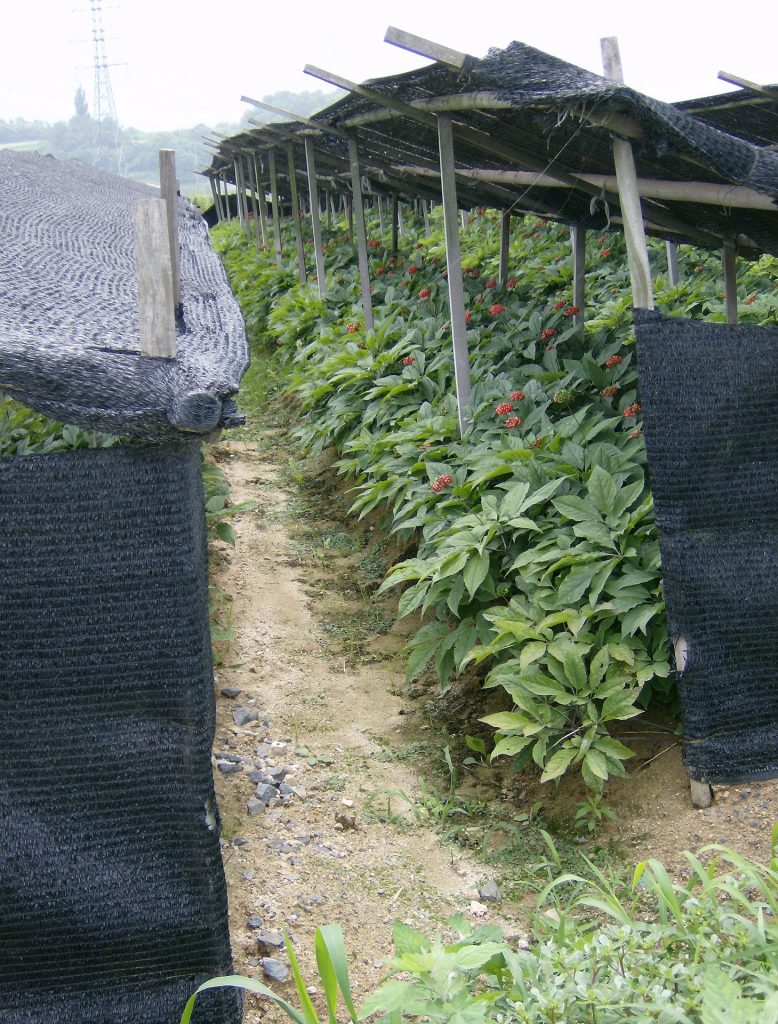 Ginseng is a herbal remedy that is particularly highly prized in Traditional Chinese Medicine. Ginseng refers to Panax ginseng, also called Korean ginseng, and this differentiates it from an unrelated plant called Siberian Ginseng (Eleutherococcus senticosus). However, both Ginseng plants do appear to share common physiological effects in animals and humans. These effects are due to the presence of a special group of phytochemicals that have adaptogenic properties. More colloquially, adaptogenic properties are those which allow the organism to adapt to stressful conditions more readily. In Panax ginseng, the adaptogenic phytochemicals are a group of terpene saponins called the ginsenosides. In Siberian ginseng they are a more heterogenous group of terpene saponins, phenol glycosides and steroidal saponins called eleutherosides. These compounds are very likely responsible for the adaptogenic properties of the herbs and in this respect they are known to reduce stress and improve brain function and exercise tolerance.
Ginseng is a herbal remedy that is particularly highly prized in Traditional Chinese Medicine. Ginseng refers to Panax ginseng, also called Korean ginseng, and this differentiates it from an unrelated plant called Siberian Ginseng (Eleutherococcus senticosus). However, both Ginseng plants do appear to share common physiological effects in animals and humans. These effects are due to the presence of a special group of phytochemicals that have adaptogenic properties. More colloquially, adaptogenic properties are those which allow the organism to adapt to stressful conditions more readily. In Panax ginseng, the adaptogenic phytochemicals are a group of terpene saponins called the ginsenosides. In Siberian ginseng they are a more heterogenous group of terpene saponins, phenol glycosides and steroidal saponins called eleutherosides. These compounds are very likely responsible for the adaptogenic properties of the herbs and in this respect they are known to reduce stress and improve brain function and exercise tolerance.

Although Panax ginseng often receives the large part of the plaudits for improving exercise tolerance, Siberian ginseng may also be effective in this regard. For example studies have been performed on Siberian ginseng in healthy adults and these studies show that supplements containing active components are able to affect cellular defence, physical fitness and lipid metabolism. Therefore the exercise effects of both Korean and Siberian ginseng are evidenced, and this supports the traditional use of these herbs as adaptogenic herbs, useful in those performing physical activity. These benefits may come about through the ability of adaptogenic herbs to lower stress hormone output. Ginseng is now grown commercially because of its popularity as a supplement.
For example, the effects of Korean ginseng have been investigated in healthy subjects undergoing exercise. In one study researcher gave a ginseng supplement containing Panax ginseng, dimethylaminoethanol (DMEA) bitartrate as well as vitamins and minerals to a group of male subjects aged 21 to 47 years. The supplements were taken for 6 weeks. The subjects took the supplements or a placebo and then underwent a treadmill exercise test. The results showed that the subjects taking the supplements had a significant improvement in their maximum oxygen consumption, and this effect was greatest in those with the lowest initial maximum oxygen consumption. Studies investigating the exercise improving effects of Korean ginseng have reported consistent improvements in endurance, oxygen utilisation, breathing, heart rate, fatigue and stress hormone levels. Therefore Korean ginseng appears to be an effective ergogenic aid.
Eat Well, Stay Healthy, Protect Yourself
RdB
